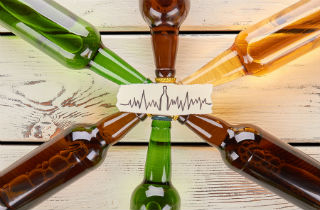Every racial or ethnic group has specific health concerns which are caused by a combination of genetic, cultural, and environmental factors. For example, some people think that Irish people drink too much as a culture. But American Indians and Alaska Natives STATISTICALLY suffer disproportionately from substance use disorders compared with other racial groups in the United States. Why is this? And what can be done about it?
What causes Native Americans to drink?
To be blunt, life on a Native American reservation is unimaginably hard. Native Americans deal with the historical trauma of government theft, lies and mistreatment. And individual trauma is also extremely common. Violence and abuse in the home are frequent. Unemployment is high. Single parent homes are common. Everyone around you drinks. Additionally, many reservations are completely rural and isolated.
Pain is everywhere.
So drinking to stop the pain is a normal coping mechanism. Why start drinking alcohol? Why wouldn’t you?
We recently talked with Native American treatment centers providers at St. Francis Mission on the Rosebud Lakota Reservation in South Dakota. As Geraldine, head of the Mission’s Family Recovery Program told me about drinking,
“It’s just the norm. It’s like anything else. It’s in your environment, you’re used to seeing it. So because your family drinks, you start too.”
Here’s a brief list of why Native Americans may drink so much:
- endemic alcoholism (100% of people affected by alcoholism)
- family dysfunction
- generational drinking patterns
- historical trauma (past actions of the U.S. government and institutions)
- increasing distance from traditions and language
- isolation
- little hope
- no communication within the family
- no positive support or role models
- personal trauma (abuse and sexual assault 2-3 times national average)
- social pressure
- unemployment (at 80% on many reservations)
Native American drinking
Learned patterns begin early in our lives. To what extent we are influenced by our environments or genetics to drink researchers do not yet know. The interplay between the two may be difficult to separate. But what we do know is that there is an answer and a way out of alcoholism, for Native Americans and all people. The journey is very personal. It is one of self-discovery and changed values. But recovery is possible.
If you have a comment, or feedback about drinking, please leave it below. We welcome all questions or comments! And will publish them.
Reference sources: September 2011 interview with Brother Pat and Geraldine from the St. Francis Mission on Rosebud Lakota Reservation in South Dakota.









Related Posts